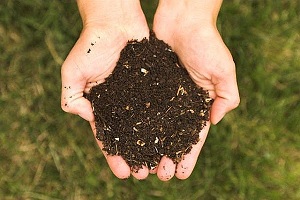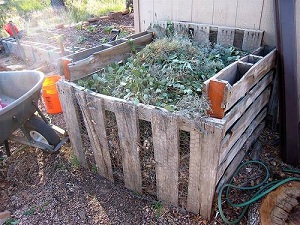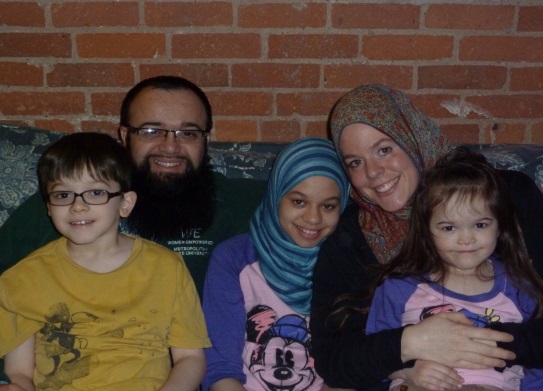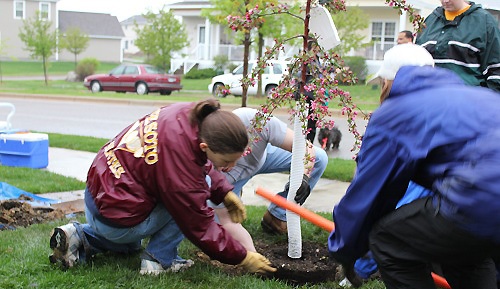8 ways to get social with Twin Cities Habitat
Do you get your news from Twitter and your gossip from Facebook? I do. I’m an AmeriCorps VISTA member in the communications department here at Twin...


What is Composting?
The process where organic wastes are converted into high quality soil. Gardeners have used compost for centuries to increase organic matter in the soil, improve the physical properties of the soil and to supply some of the essential nutrients for plant growth.
Worms, bacteria and fungi all help to breakdown organic material like grass, leaves, kitchen scraps and garden debris and to turn it into compost. The larger creatures tear and break down the waste while the smaller ones process the matter chemically by eating it. The bugs need a moist environment to thrive and to produce heat which also helps to break down the waste.
Why Compost:
Aside from the already mentioned gardening and nutrient benefits associated with composting, it also reduces the amount of waste in landfills every year. While organic materials do break down eventually, it takes longer and they do not serve a purpose once they have absorbed chemicals from other rubbish.
How to Compost:
**Before you get started, make sure to contact your city recycling coordinator for composting requirements**
You can buy or make your own compost bin. Composting in a simple pile is also an option, but it is not as effective and some cities require that composts piles are contained.
When choosing a location for your compost bin, it is important to consider a few factors.
Getting Started
Three things are required to make good compost:
air circulation, moisture and the right ingredients.
Air is introduced by stirring or turning the pile and sometimes adding big or oddly shaped material to create air pockets within the pile.
As far as moisture goes, the compost pile should feel damp, but not soaked. If there is too much water, there is not enough air, but if there is too little water, the microbes that help to produce compost will dehydrate & die.
As a general rule, add three parts of dry ingredients - leaves or dry grass - to one part of wet food waste. Add food and yard waste including:
Do Not Add the Following:
How to Use Compost
After the pile has finished composting you can use it in the following ways:
For more yard and garden information, visit the University of Minnesota Extension website.
Have you purchased any materials for your backyard projects at the ReStore? Tell us about it!
By Misha Hemingson, Communications Intern; and Terry Barnes, Homebuilding Support Associate, Twin Cities Habitat for Humanity.
Your gift unlocks bright futures! Donate now to create, preserve, and promote affordable homeownership in the Twin Cities.

Do you get your news from Twitter and your gossip from Facebook? I do. I’m an AmeriCorps VISTA member in the communications department here at Twin...

Roughly 50-60 hardworking, deserving families move into Habitat homes each year. But what happens after they tackle the big move?

The Master Gardener Program, which is run by the University of Minnesota Extension, has worked alongside Twin Cities Habitat for Humanity for the...